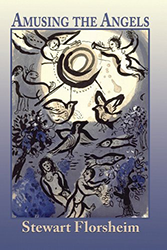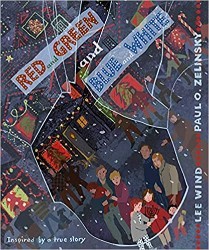Many American Jews are unaffiliated with Judaism. Some do not observe Jewish rituals in any regular way; others might not worship at all. And yet Jewishness still pervades their lives: in food, in attitude, in ways of speaking, and — of course — in that wry sense of humor that is marked by self-deprecation and a slight satirical impulse. What contemporary poet speaks for those of us who do not know Yiddish or Hebrew, who do not attend services, who eat BLTs, and who might even go shopping on Yom Kippur?
Enter poet Kim Dower, whose latest poetry collection is a Jewishly infused valentine to her mother, to all mothers, and to “everyone who has a mother.”
Grounded in an early memory that functions as a warning — “Don’t get used to this” — the title poem describes a Jewish identity that is almost assimilated but that nonetheless proclaims itself:
Easter Sunday, and you always liked
to get dressed, go to brunch, maybe
there’s a good movie playing somewhere?
Wrong religion, we were not churchgoers,
but New Yorkers who understood the value
of a parade down 5th Avenue …
The tone of Dower’s poems run the gamut between that opening admonition and that gleefully Jewish Easter celebration. They both caution and celebrate: In one poem, the speaker warns her son that dementia runs in the family; in another, she reminisces about a Russian grandmother’s house, which smelled of garlic, chicken fat, and boiled secrets. In others, she enumerates the tastes and fragrances of past ancestors and contemporary experiences. In “Hands,” for example, Dower mourns her mother’s decline and death, penning elegiac lines that fill the reader with forlorn joy:
I think about her hands
at the end, in the home, how she would
put them over mine and squeeze,
How I let her keep them there.
The search for God is also sneakily present in these poems. The divine appears in the speaker’s poems about her son, but more often in comical spaces, as when she contemplates her mustard-drenched hotdog and prays for — and gets — a home run at a baseball game. And, in a manner at once droll and sweet, Dower produces a remarkable vision of her mother baking sugar cookies in Heaven:
They have you baking
right away so you’ll feel useful
we deliver the cookies
to children who’ve passed
The people in charge of Heaven
sound so thoughtful, I tell her.
Well, they’re angels,
she says …
but they all talk way too much
and their asses
are huge.
Surprisingly complicated, these poems entreat us to pay attention to the people we love, and to create situations in which we ourselves may be remembered lovingly and poetically.
Stephanie Barbé Hammer’s is a 7‑time Pushcart Prize nominee in fiction, nonfiction, and poetry. Her new novel Journey to Merveilleux City appears with Picture Show Press.





